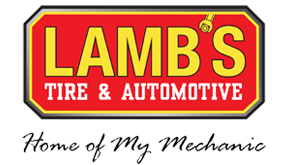Why High Mileage Oil Changes Aren’t Just for Older Cars

Few auto maintenance services do more to protect your vehicle than frequent oil changes. When you get oil change service regularly, you’ll benefit from engine lubrication, a reduced risk of overheating, and a cleaner engine. However, the best type of oil for your car will change throughout its life span; it may require high-mileage oil at a certain point.
Though high-mileage oil is most commonly used in older vehicles, that isn’t the only reason you may need it. Keep reading for an in-depth explanation of high-mileage oil and why it could be the right choice for your next oil change in Austin, TX — regardless of your car’s age.
Understanding High-Mileage Oil
If you drive a newer vehicle, standard oil products like conventional and synthetic oil should be more than enough to keep it up and running. But your car won’t stay new forever — as time goes on, it will suffer from problems such as leaks, excessive oil consumption, and more.
That’s where high-mileage oil comes in; it is designed for use in vehicles that have been on the road for 75,000 miles or more. When you use high-mileage oil in one of these cars, they’ll be able to run as smoothly as possible for as long as possible.
The Benefits of High-Mileage Oil
Thanks to its specialized additives, high-mileage oil is capable of helping your vehicle deal with weak points commonly found in aging or heavily used engines. Some of the benefits associated with switching to this oil type include:
- Reduced engine sludge. Over time, engines tend to suffer from built-up oil sludge. Fortunately, high-mileage oil is capable of dissolving this material.
- Lower oil consumption. Oil leaks and burn-offs are all too common in older vehicles. HIgh-mileage oil can help refresh your engine seals, making these issues less of a concern.
- Added damage protection. Generally speaking, high-mileage vehicles deal with significant wear and tear. High-mileage oil can give these engines the protection they need to continue functioning as intended.
Can High-Mileage Oil Help Newer Cars?
Generally speaking, high-mileage oil isn’t the right choice for new vehicles. After all, this product is created specifically for use in aging vehicles, and the problems it focuses on solving don’t usually appear in cars that are fresh off the assembly line. Because of that, you may be better off investing in another high-quality oil product if you drive a newer vehicle.
However, there is one situation where high-mileage oil may be a good choice for a recently manufactured car. As you might expect, mileage is critical in determining when high-mileage oil is the right fit for a vehicle. That means relatively new cars with many miles on their engines can definitely benefit from this oil type.
Does your car fit this description? If so, these red flags could indicate that it’s time to switch to high-mileage oil:
- Oil stains under your car
- Oil streaks on your engine’s lower parts
- A rattling noise from your engine
Other Oil Types To Consider
If your car is only a few years old and hasn’t been on the road all that much, high-mileage oil probably isn’t ideal for you. Instead, take a look at these oil types before scheduling an Austin oil change:
Conventional Oil
Conventional oil is still the most popular oil on the market today — and that’s primarily because of its low price. However, this semi-refined crude mineral oil won’t deliver the sheer performance of synthetic products. Furthermore, you’ll need to schedule oil change service more frequently with conventional oil than with any other oil type.
Full Synthetic Oil
In many ways, full synthetic oil couldn’t be more different from conventional oil — this man-made motor oil meets the highest possible standards for engine protection and boasts a longer life span than any other oil. Though you’ll need to pay a bit more for full synthetic oil, being able to wait longer between oil changes can help offset this cost.
Synthetic Blend Oil
Synthetic blend oil is a combination of conventional and full synthetic oil. That allows it to act as a midpoint between these products in terms of pricing, performance, and life span.
Where To Get an Oil Change in Austin, TX
As you might expect, not every auto shop in Austin is equally qualified — and some might even knowingly overcharge you for their services. When you’re looking for a shop that can handle your next Austin oil change, make sure they deliver:
- Skilled mechanics. No one in the auto repair field knows more about vehicles than ASE-certified mechanics, so your auto shop should definitely employ these technicians.
- Full-service oil changes. The best oil changes go beyond simply removing and replacing your oil by providing services like chassis lubrication, new oil filter installation, and fluid level checks.
- Ways to save money. Ideally, your auto shop will tell you how much your oil change will cost with free quotes and help you lower this expense with online coupons.
At Lamb’s Tire & Automotive, we offer each and every one of these advantages to our valued customers. Get the best oil change Austin has to offer by booking your appointment today!









